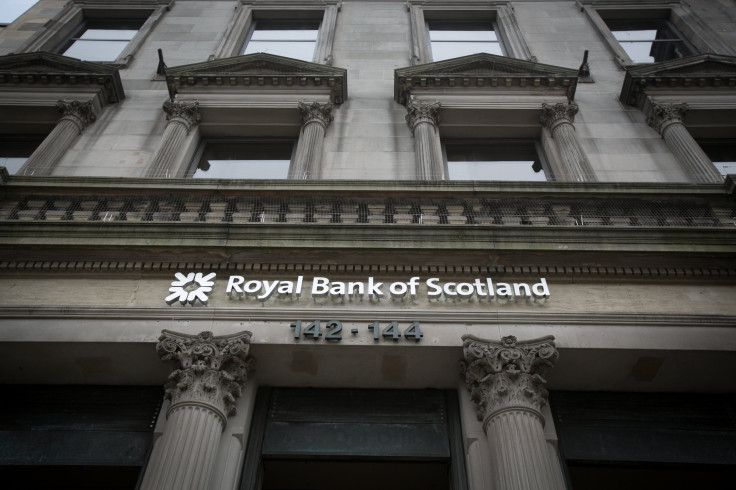RBS To Change Name To NatWest Group, Reduce Size Of Investment Bank Unit

KEY POINTS
- RBS received a $59 billion government bailout in 2008
- The UK government still owns 62% of the bank
- Alison Rose is the first woman to head one of UK's top four banks
The Royal Bank of Scotland (RBS) said on Friday that it plans to change its name to NatWest Group later this year.
The rebranding of the nearly 300-year-old institution will serve to put a distance between the bank and the huge 45 billion-pound sterling [now $59 billion] government bailout it received in 2008 which saved it from collapse and nearly destroyed its reputation.
The taxpayer-funded rescue has made the bank 62% government-owned. (The U.K. government plans to sell out its stake by 2024.)
Along with the rescue package, RBS’ name was further damaged by revelations that it had sold toxic mortgage-backed securities ahead of the global credit crisis and that it also forced smaller companies into failure as a means of selling their assets for profit. In addition, RBS mis-sold payment protection insurance and sought to manipulate foreign exchange markets.
The bank’s chief executive officer, Alison Rose, who became boss last November (thereby becoming the first woman to lead one of the four largest U.K. banks), called the rebranding strategy the “start of a new era.”
The lender said the new name will reflect the fact that NatWest is already the bank’s biggest brand. About 80% of the bank's customers reportedly use NatWest branches.
However, the existing RBS bank branches, which are primarily located in Scotland, will keep the RBS name. Branches of Ulster Bank, another subsidiary, will maintain its name in Northern Ireland.
Moreover, the bank’s chairman, Howard Davies, said its headquarters will remain in Edinburgh, Scotland.
“We’re not unscrewing any brass plaques at this point,” he said. However, CEO Rose will be based in London.
Rose also assured the name change will not lead to any job reductions – although the bank has plans to cut costs by $326 million in 2020 after reducing expenses by $404 million last year.
The bank also delivered pre-tax profits of $4 billion in 2019, a 93% jump from the prior year. Bank shareholders will receive another $1.26 billion in dividends, of which $782 million will go to the British government.
In addition, RBS’ NatWest Markets investment bank plans to eliminate parts of its business and reduce its portfolio of risky assets in half – or by $26 billion.
“This applies to parts of our NatWest Markets business, where we have shrunk over time but we could do more to increase its focus on our corporate and institutional customers and their needs,” Rose said. “We believe that as we refocus NatWest Markets, corporate and institutional customers in the medium to long term will represent around [$78 billion] of risk-weighted asset equivalents and returns will improve to around 8%.”
Rose also said the bank will cease its lending and offering underwriting services to major oil and gas producers that have failed to put forth credible plans to meet Paris climate agreement targets. RBS also seeks to eventually phase out all coal financing by the end of the decade.
“On our balance sheet, only 1% of our lending is to the oil and gas sector, and in coal it’s marginal, down at 0.3%,” Rose stated. “But, for me, the key message here is we’re all going to need to work together; no one organization is going to solve the climate challenge on their own and we’re very keen to work with business, with regulators, with industry to help make the plans to transition over the next 10 years.”
She added: "My focus is on making sure we're a safe, smart bank for the future.”
However, analysts were generally unimpressed by the changes.
Aman Rakkar, an equity research analyst at Barclays said the NatWest Markets restructuring “may underwhelm,” while Benjamin Toms, an analyst at RBC Capital Markets said “we do not see anything here to get particularly excited about.”
Edward Firth, managing director at KBW, quipped that his “over-riding impression” is “this will remain a building site for many years.”
© Copyright IBTimes 2024. All rights reserved.




















